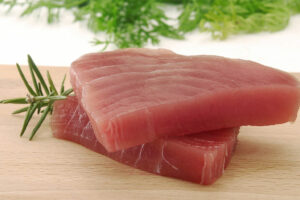4 ways to ease psoriatic arthritis and its symptoms

Nearly thirty percent of people with psoriasis develop psoriatic arthritis later in life. While the former targets the skin, the latter causes the immune system to affect the joints. Both are autoimmune disorders. Psoriatic arthritis causes joint pain, swelling, and inflammation, which can often be debilitating. There is no definitive cure for psoriatic arthritis. However, here are some treatment options, meal plans, and lifestyle tips that can help manage the symptoms:
Clinical treatment options
While psoriatic arthritis can be managed by making changes in nutrition and home remedies, it is crucial to be aware of clinical options too. This is because natural remedies may not provide immediate relief from worsening symptoms as compared to the clinical treatment options.
Otezla®
Inflammation is one of the significant and most problematic symptoms of psoriatic arthritis, which can make performing daily tasks difficult. This oral treatment option can help manage symptoms like joint swelling, tenderness, and pain. One of the advantages of using Otezla® is that it does not require initial or routine blood tests.
Rinvoq®
It is yet another treatment option used for managing various types of arthritis, including psoriatic arthritis. It helps effectively manage symptoms like pain, swelling, and stiffness associated with psoriatic arthritis and also protects from irreversible joint damage. Apart from this, Rinvoq® has also been observed to provide relief from skin plaques.
Foods to eat
Salmon
Rich in anti-inflammatory omega-3 fatty acids, salmon is highly beneficial for those with inflammatory disorders like psoriatic arthritis. Additionally, salmon and other fatty fish such as albacore tuna, herring, mackerel, and lake trout can help to protect against heart diseases. It is recommended to include fatty fish in the meal plans at least twice a week to keep inflammation at bay.
Whole grains
This includes brown and wild rice, whole-wheat pasta, quinoa, bulgur wheat, and barley. These are packed with fiber and are helpful in maintaining normal blood cholesterol levels. High cholesterol levels tend to cause inflammation of the blood vessel wall. This can trigger psoriatic arthritis symptoms. An average daily intake of 30 grams of whole wheat can benefit those with psoriatic arthritis.
Garlic
It contains high levels of phytonutrients, which are potent inflammation-fighting nutrients. Garlic can be easily added to soups, curries, as well as salads. Raw as well as roasted garlic also helps to keep the immune system strong along with fighting inflammation. Powdered or packaged forms can deplete the nutrients, hence make sure you use fresh garlic.
Foods to avoid
Fatty red meat
Fatty red meat is one of the worse foods that trigger psoriatic arthritis symptoms. Overconsumption of such food can lead to an increase in BMI, leading to inflammation flare-up. In addition, it can lower the effectiveness of prescribed treatment options and hinder the recovery process.
Eggplant
Nightshade vegetables such as eggplant, peppers, tomatoes, and potatoes have been known to trigger inflammation in some people. A regular intake of these foods can aggravate symptoms of psoriatic arthritis. This is because these vegetables contain solanine, a chemical that may trigger inflammation. However, eggplants, and other vegetables do not trigger psoriatic arthritis symptoms in everyone. A process of elimination can help determine if a person’s psoriatic arthritis is affected by the intake of certain vegetables.
Soda
Soda and other carbonated drinks are infused with high amounts of processed sugar. Intake of artificial sugar can lead to elevated levels of insulin in the body, which can easily trigger inflammation and aggravate arthritis symptoms.
Tips for managing psoriatic arthritis
Moisturize the skin daily
One of the prominent symptoms of psoriatic arthritis is itchy, dry, and flaky skin, especially near the joints. Hence, doctors suggest applying creams, moisturizers, and emollients to prevent the same. Specific creams for treating psoriasis contain ingredients like coal tar and salicylic acid that can effectively treat dry and flaky skin. However, ensure that the moisturizers used do not cause any underlying conditions that might aggravate the condition.
Use aloe vera
Aloe vera has been long used for several autoimmune conditions, including psoriatic arthritis. It contains anti-inflammatory properties that not only treat skin wounds but also calm itchy and inflamed skin caused due to psoriatic arthritis. Aloe vera is one of the main ingredients in many topical creams. However, it is recommended to consult a doctor to use the same as some people are allergic to other components present in the plant that may aggravate other underlying health conditions which might worsen psoriatic arthritis.
Drink more water
Staying hydrated is essential for healthy skin. While it is recommended to drink eight glasses of water every day for hydration, the required quantity is different for everyone depending on the climatic condition of the location. For instance, people living in humid areas may require less water as compared to the ones living in hot and dry areas. However, it is crucial to maintain hydration as it can reduce the risk of joint inflammation and stiffness.
Psoriatic arthritis is a serious health disease. With the required treatment option, changes in meal plans and lifestyle can help ease the discomfort of the condition’s effect to a great extent. Make sure you consult a doctor as soon as you experience any symptoms of the disorder.



